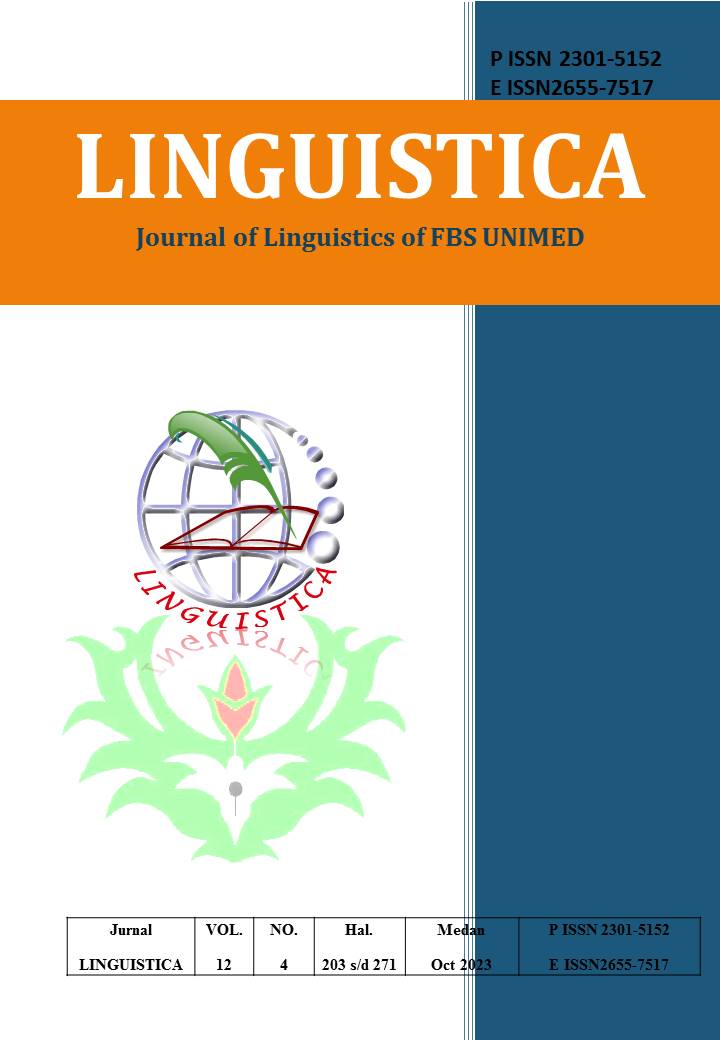POSITIVE POLITENESS STRATEGIES IN JAY SHETTY PODCAST YOUTUBE CHANNEL: AN INTERVIEW WITH WILL SMITH
DOI:
https://doi.org/10.24114/jalu.v12i4.52488Abstract
This study aims to examine the positive politeness strategies that are often used to show similarity, familiarity and respect. This research discusses the positive politeness strategies used by Jay Shetty on the Jay Shetty Podcast YouTube channel. This research focuses on the types of positive politeness strategies used by Jay Shetty to Will Smith as the guest star in talk show videos on the Jay Shetty Podcast YouTube channel. The data from this study are analyzed using the theory proposed by Brown & Levinson (1987) who argue that there are 15 positive politeness strategies. The method used to analyze this research is a qualitative approach with the content analysis method, the data in this study are taken from Jay Shetty's interviews with Will Smith that have been transcribed. The results showed that Jay Shetty used 10 out of 15 positive politeness strategies proposed by Brown & Levinson (1987) when he communicated with the guest star, with a total of 75 data. Based on the analysis, the positive politeness strategy of exaggerate (approval, interest, sympathy with H) is the most dominant strategy used by Jay Shetty with a total of 21 data. Jay Shetty uses this strategy to show respect, approval, interest and sympathy to his guest star so that they are satisfied.Downloads
Published
2023-10-31
Issue
Section
Articles
License
Copyright (c) 2023 TASRUL DONI WAHDANI, PEPI SITI PATUROHMAH, R. MYRNA NUR SAKINAH

This work is licensed under a Creative Commons Attribution-ShareAlike 4.0 International License.
Authors who publish with this journal agree to the following terms:
- Authors retain copyright and grant the journal the right of first publication with the work simultaneously licensed under a Creative Commons Attribution License that allows others to share the work with an acknowledgment of the work's authorship and initial publication in this journal.
- Authors are able to enter into separate, additional contractual arrangements for the non-exclusive distribution of the journal's published version of the work (e.g., post it to an institutional repository or publish it in a book), with an acknowledgment of its initial publication in this journal.
- Authors are permitted and encouraged to post their work online (e.g., in institutional repositories or on their website) prior to and during the submission process, as it can lead to productive exchanges, as well as earlier and greater citation of published work (See The Effect of Open Access).
- This work is licensed under a Creative Commons Attribution-ShareAlike 4.0 International License.

